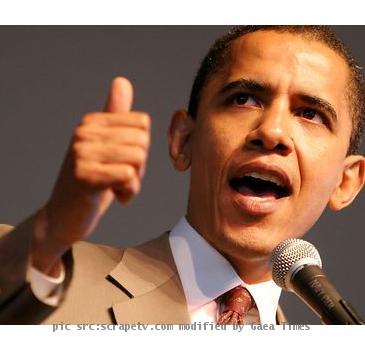Judge: Jury in Blagojevich corruption trial seeks transcript of ex-deputy governor’s testimony
By Michael Tarm, APMonday, August 16, 2010
Judge says Blagojevich jurors will get transcript
CHICAGO — An alleged extortion scheme against Rahm Emanuel surfaced anew in Rod Blagojevich’s corruption trial Monday when jurors requested a transcript of testimony about the former Illinois governor allegedly squeezing fundraising help from the brother of the then-congressman.
After signaling last week that they might be stuck, jurors asked to read the testimony of a top aide to Blagojevich who testified in June that the governor had planned to hold up a $2 million grant to a school in Emanuel’s district until his Hollywood-agent brother, Ari, held a fundraiser.
The aide, former deputy governor Bradley Tusk, had said that he ignored a Blagojevich directive to deliver the message to Emanuel, who is now the White House chief of staff. Tusk, who was appointed to the deputy governor’s job, said he thought the plan was “both illegal and unethical.”
Over objections from defense attorneys, Judge James B. Zagel granted the jurors’ request. It is the first time jurors will have received transcripts since they began deliberations in July, and led to renewed speculation over their progress — with some calling it a plus for the prosecution.
Jurors had returned Monday for their 13th day of deliberations. They had sent a note to Zagel last week signaling they were stuck on many of the 24 counts against Blagojevich, and had agreed on only two. Zagel told them to deliberate further on 11 wire fraud counts that they had not considered.
But the note they sent Monday suggested jurors may be looking at a separate count of attempted extortion directly related to the Chicago school. They could also be focusing again on the first and broadest count against Blagojevich, racketeering. Part of that count deals with the school grant.
None of the wire fraud counts are connected directly to the alleged bid to use the school money to squeeze campaign donations — since that alleged scheme occurred two years before Blagojevich’s phones were tapped.
Tusk said he started hearing from Emanuel and his staff in 2006 about the need to quickly get the grant to build a sports field. Tusk testified that when he talked to Blagojevich, the governor said he wouldn’t release the money until Emanuel’s brother held the fundraiser.
Afterward, Tusk said he complained to the chief ethics officer in Blagojevich’s office.
“I believe I used the phrase, ‘You need to get your client under control,’” Tusk said. “He said he would take care of it.”
Nothing in the indictment of Blagojevich suggested that Emanuel — now President Barack Obama’s chief of staff — was actually threatened. Emanuel has not been accused of wrongdoing.
Attorneys for Blagojevich told reporters early in the trial they intended to call Emanuel to testify. But after prosecutors concluded their case, the defense immediately rested theirs without calling a single witness.
Some legal observers say the request for Tusk’s testimony can only be seen as a positive development for the prosecution. They note that Tusk differed from other former Blagojevich aides who testified, some of whom had pled guilty to crimes or were offered immunity to appear.
“I think we all woke up thinking (the jurors) will be back Monday, saying they are deadlocked,” said Jeff Cramer, a former federal prosecutor. “This note says the government is still in the game.”
Another former federal prosecutor, Phil Turner, agreed.
He says the defense concern will now be that jurors will put too much emphasis on Tusk’s testimony compared to other, perhaps weaker testimony.
“It’s not a good thing for the defense at all,” he said. “If jurors get that one transcript, they tend to look at it as gospel. The printed page doesn’t give you a sense of the demeanor of a witness — whether they paused or hesitated in their answers.”
Before assuming the deputy governor’s job in 2003, Tusk had previously worked for U.S. Sen. Charles Schumer and New York Mayor Michael Bloomberg. He left Blagojevich’s office in 2006 to take an investment banking job in New York, his home state.
Turner says there’s little doubt the defense would have preferred that the judge refused to let jurors see Tusk’s transcript. But he added that they had little leverage to prevent it and, in the end, they didn’t put up much of a fight in court.
During a brief hearing to discuss a note to be sent back to the jury with the transcript, prosecutors and defense attorneys agreed to wording that instructed jurors to consider how Tusk came across on the witness stand in assessing his credibility.
Under cross-examination, Tusk had conceded that he had never gone to the police, prosecutors or other legal authorities to report his concerns, despite saying he believed the alleged plan to be “illegal.”
Blagojevich, 53, has pleaded not guilty to all 24 counts, including charges he tried to sell or trade Obama’s old Senate seat for a high-paying job or campaign cash. His 54-year-old brother, Robert Blagojevich, a Nashville, Tenn., businessman, faces four counts and also pleaded not guilty.
Tags: Barack Obama, Campaign Finance Improprieties, Campaigns, Chicago, Extortion And Threats, North America, Political Corruption, Political Fundraising, Political Issues, United States


